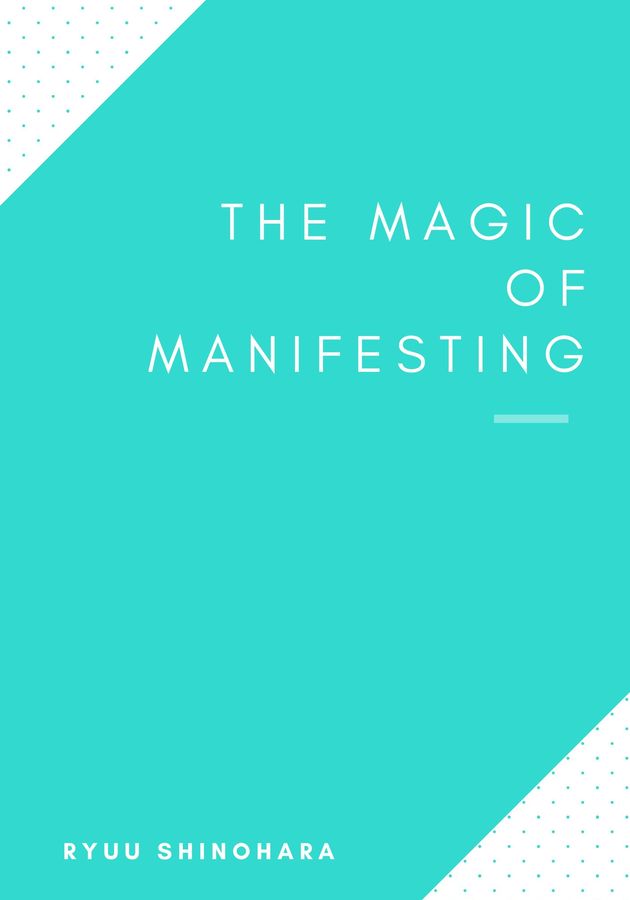Language is the enemy of emotions – try to put a feeling into words, and it disappears as quickly as a snowflake in your palm. Hence, trying to “name the phrases that make love and connection possible” doesn’t seem like a feasible objective. Yet that’s precisely what Kelly Corrigan aims to accomplish in “Tell Me More,” a collection of stories about the 12 hardest things she is learning to say. For her ambition alone, she deserves an attentive ear. So, get ready to hear her out!
It’s like this: accepting the messiness of life
Three months after her beloved dad Greenie passed away, the life of Kelly Corrigan fell apart. “There was no real reason for it to fall apart that morning,” she writes. “And, in fact, it didn’t. I did.”
On the face of it, it was just another regular morning at the Corrigans. And yet, as soon as Kelly opened her eyes waking from a pleasant dream to the smell of bacon – her husband’s everyday breakfast – the whole world seemed to her as if already out of joint. It’s not that something especially alarming had happened during the night. But that was the problem – the usual routine. And this time, it hit Kelly hard.
First, she heard her teenage daughters – Georgia, 16, a “world-class procrastinator,” and Claire, 14, a Lin-Manuel Miranda fan – fighting over who’s wearing whose shirt once again. Then, she saw Edward – her husband, a Ben Stiller look-alike and a die-hard Warriors fan – leaving for work without doing anything to stop them.
Finally, she realized that this was always his way of dealing with things. “Let ‘em fight!” he learned from the single parenting book he had ever read – and so he never bothered. Kelly couldn’t stand that – just as she couldn’t stand the mess she was in that morning or the regular mess in the kitchen. She was about to start shouting, raging, and breaking every single thing around her into thousands of tiny pieces when she remembered the favorite phrase of her meditation teacher, “It’s like this.” And then everything was a bit calmer.
Sometimes, life is just like this. Unbearable, untidy, chaotic. In consequence, we become irritable, ill-tempered, prickly, on the verge of being angry at just about anyone. But anger changes nothing; if anything – it makes things worse. The only thing we can do in such cases is accept life in all its messiness, taking a deep breath and saying: “it’s like this.”
Tell me more: listening is often a solution in itself
“Why are you trying to fix things? I just need you to listen!”
Most men on this planet have probably heard these words quite a few times in their lives. The problem is that very few have actually bothered to understand them, let alone act upon them. It almost seems as if men are programmed to offer answers and solutions.
Unfortunately, even when their solutions make a lot of sense on paper, in reality, they end up making things worse. The reason is simple – they are never what the doctor ordered. In essence, you shouldn’t be calling a cab for someone who actually just wants to ride with you; the destination is sometimes less important than the company.
Kelly’s friend Tracy seems to have understood this better than anyone – possibly because, as difficult they might be in relationships, listening in and paying attention are even more difficult in parenting. How do you not help your children when they are in trouble? As Tracy once said to Kelly, “it is a bit like watching someone struggle over a puzzle, and you have the final piece in your pocket.”
Indeed, watching your child suffer over something you can solve is possibly the most challenging thing you will ever be asked to do as a parent. And yet, it is one of the things you should do most often. Kelly is not just speaking from her mind – but from her experience. She still remembers the first time she understood the power of this parenting strategy.
She was with Tracy when her daughter Georgia – then 11 years old – called her to complain that nobody liked her at school. Apparently, another girl named Piper accused Georgia of being mean to her. Nobody believed her that she wasn’t.
Kelly was torn between two things, to either ask Georgia what she had done or head straight to her school and clear things up. Instead, advised by Tracy, she just relaxed and uttered the following three words: “Tell me more.” And Georgia told her everything. By the end of the discussion, she wasn’t crying anymore.
No: the most courageous and liberating word in the language
A friend once told Kelly that she could sum up three years and $11,000 of therapy in a single sentence: “Learn to say no and when you do, don’t complain and don’t explain. Every excuse you make is like an invitation to ask you again in a different way.” Kelly firmly believes that both the time and the money were worth this single takeaway: whether sexually, professionally, or personally – she argues vehemently – saying “no” might be one of the best and most courageous things you can do. In most cases.
Kelly’s mother knew how to say no. “She had her own mind, and she used it,” the author writes. In other words, she never bothered about what other people might think of her if she declines their invitation to do something or go somewhere. She’d just wave them off with a simple no-excuses “no” and would instead spend the evening alone, calm, and happy. “It must be possible to say ‘no’ nicely and still be loved,” Kelly remarks, remembering her mother. After all, no matter how many times her mother had said “no” to her family and her friends, she was always adored by both.
Most children are exceptional at saying “no”; adults, on the other hand, are very bad at this. Kelly knows it from experience: when she was a child, “no” was her favorite word; now, she has all but forgotten to use it. Just a quick trip down memory lane: after her mother had ordered the wrong thing for her birthday when she was 10 years old, Kelly refused to eat cheese for the next ten years – even though it was her favorite food! How many adults can you name with similar willpower? Thankfully, Kelly’s husband is one of them.
You see, Kelly had a plan for her life: she wanted to give birth to four children by the time of her 40th birthday, and with two already under the belt at 36, she was on course to make her dream come true. But then she had to battle with cancer, and the chemotherapy suspended her fertility. She had no option but to move to Plan B, asking her husband if he wanted to adopt two children. You already know what Edward said: “No.” Relationshipwise, he was at a good place in his life at the time – happily married with two children – and it was time for him to dedicate some more time to himself and his career.
At first, Kelly was devastated. However, she soon realized that – as difficult as hearing this “no” was – it was also the only way out of an unpredictable and messy future. If Edward hadn’t been selfish at the moment, they both might have regretted it later on, and maybe their marriage would have come under threat. The lesson is counterintuitive, but straightforward: no matter what they say to you – and no matter how difficult saying it might be – “no” is often a word of love. Use it often and use it wisely.
Good enough: perfection is not required
Do you know why Jewish children are initiated religiously at the age of 13? Neither did Kelly. So, soon after the bat mitzvah of Ruby – her friend Ariel’s daughter – she asked the rabbi why. The rabbi told her that the age of 13 is pivotal in a human’s life. It is not merely a moment of incredible intellectual growth, he explained, but also the point of no return into adulthood.
The objective of the mitzvahs is pretty simple – to show the toddlers of yesterday that the world of tomorrow is theirs for the taking. To pat them on the back and make sure they can understand their obligation to be something more than just mere passersby in the world. To tell them: “You are already good enough to be an adult.”
There’s nothing more important than this belief, says Kelly. At the age of 13, most adults seem like almost mythical figures, bigger-than-life heroes who can do just about anything. They are, in one word, “perfect.” But perfection hinders growth: to win in life, you need to win just the few, more important battles – not all of them. That’s why there are mitzvahs: it’s important that the thirteen-year-olds of the world learn from the adults that they are “good enough.”
“That’s how it works,” writes Kelly. “Someone important believes in us, loudly and with conviction and against all substantiation, and over time, we begin to believe, too – not in our shot at perfection, mind you, but in the good-enough version of us that they have reflected […] There’s no greater gift than to help a child see their enoughness.”
I don’t know: honesty is wisdom
Being honest with yourself starts with three simple words: “I don’t know.” Socrates turned this into a method for extracting knowledge; you ought to turn it into a way of life.
Take Kelly, for example. Raised in a devout Catholic Irish American family, she still doesn’t know what to make of God. Throughout her life, she has “stood in every square on the board: obedient believer, secretly hopeful, open-but-dubious;” she even “walked away from the board entirely, only to circle back.” Nowadays, “I’m not sure of anything,” is all she can say. But that’s quite enough – life is a mystery, and we should live it that way more often than not.
“I try to be one of the exceptional people who can live with the complexity of things, who are at peace with the unknown and the unknowable, who leave all the cages open,” Kelly explains. “I tell myself: ‘There’s so much that you don't know, you can't know, you aren't ever going to know.’”
Try telling this yourself from time to time – it’s not only freeing but also the first step toward greater and more profound wisdom. After all, you can’t learn what you don’t admit to not knowing.
Final Notes
“Tell Me More” lost to Tara Westover’s “Educated” in the race for the “Best Memoir & Autobiography” honor at the annual 2018 GoodReads Choice Awards, but it was among the 16 nominees for a reason.
Candid, fearless, and warm, the book is a joy to read. Even though a memoir, its wisdom and findings feel universal, as they offer a piercing view beneath the surface of our shared hunger for love and connection.
Indeed, each of Corrigan’s 12 highly personal stories, and each of the phrases these illustrate, demonstrates just how similar we are – in all our differences.
12min Tip
When it is difficult to put some feelings into words, try using short common phrases, such as “No,” “I don’t know,” “I was wrong,” or “I love you.” More often than not, they might be all you need to make yourself clear.





























